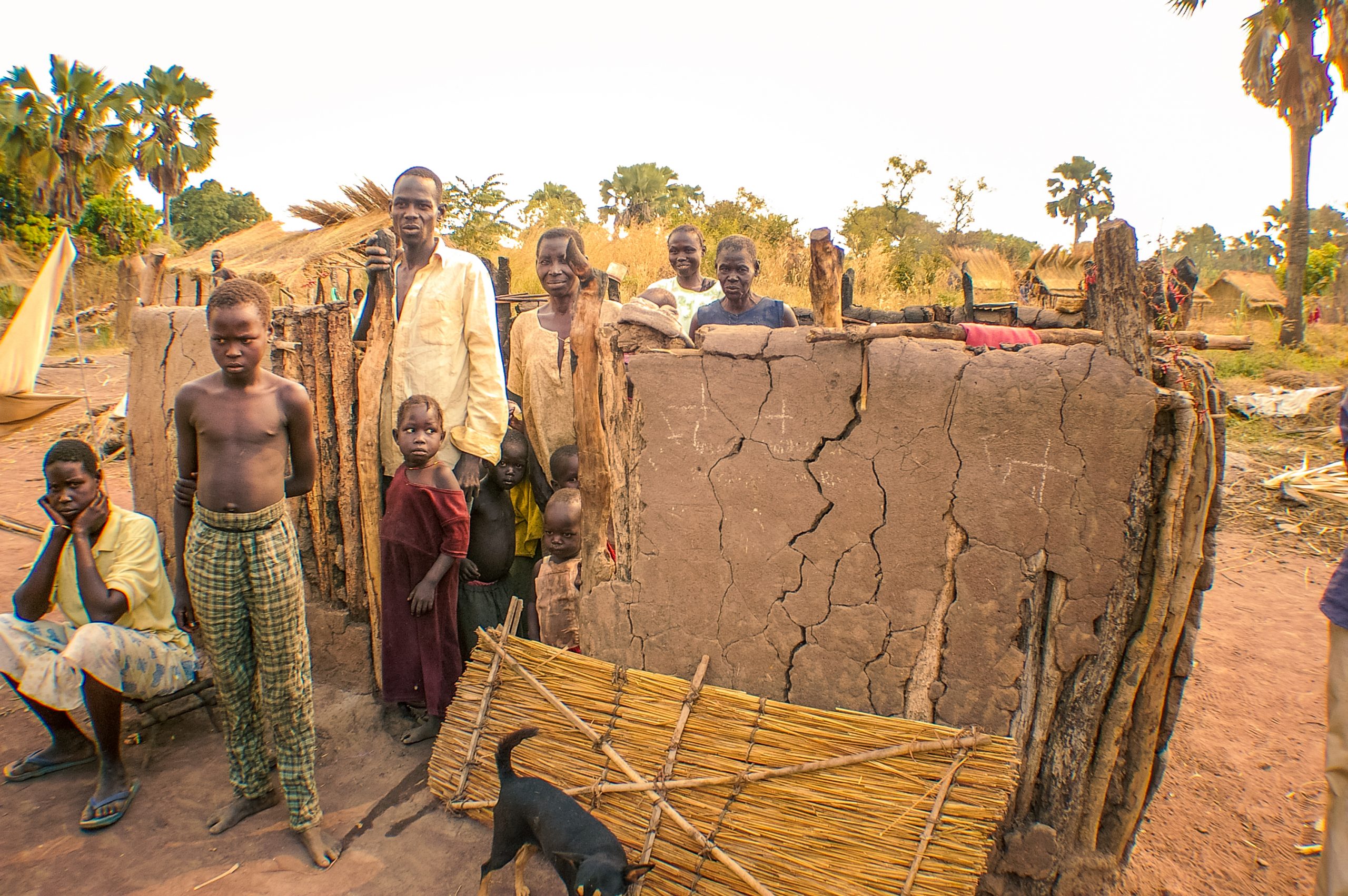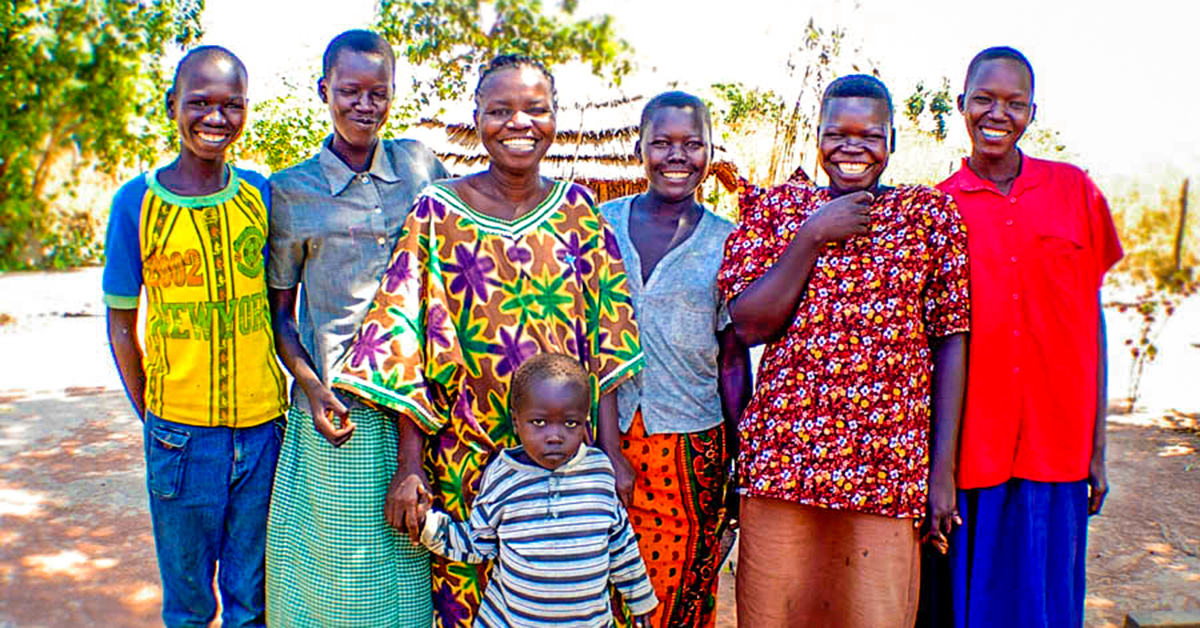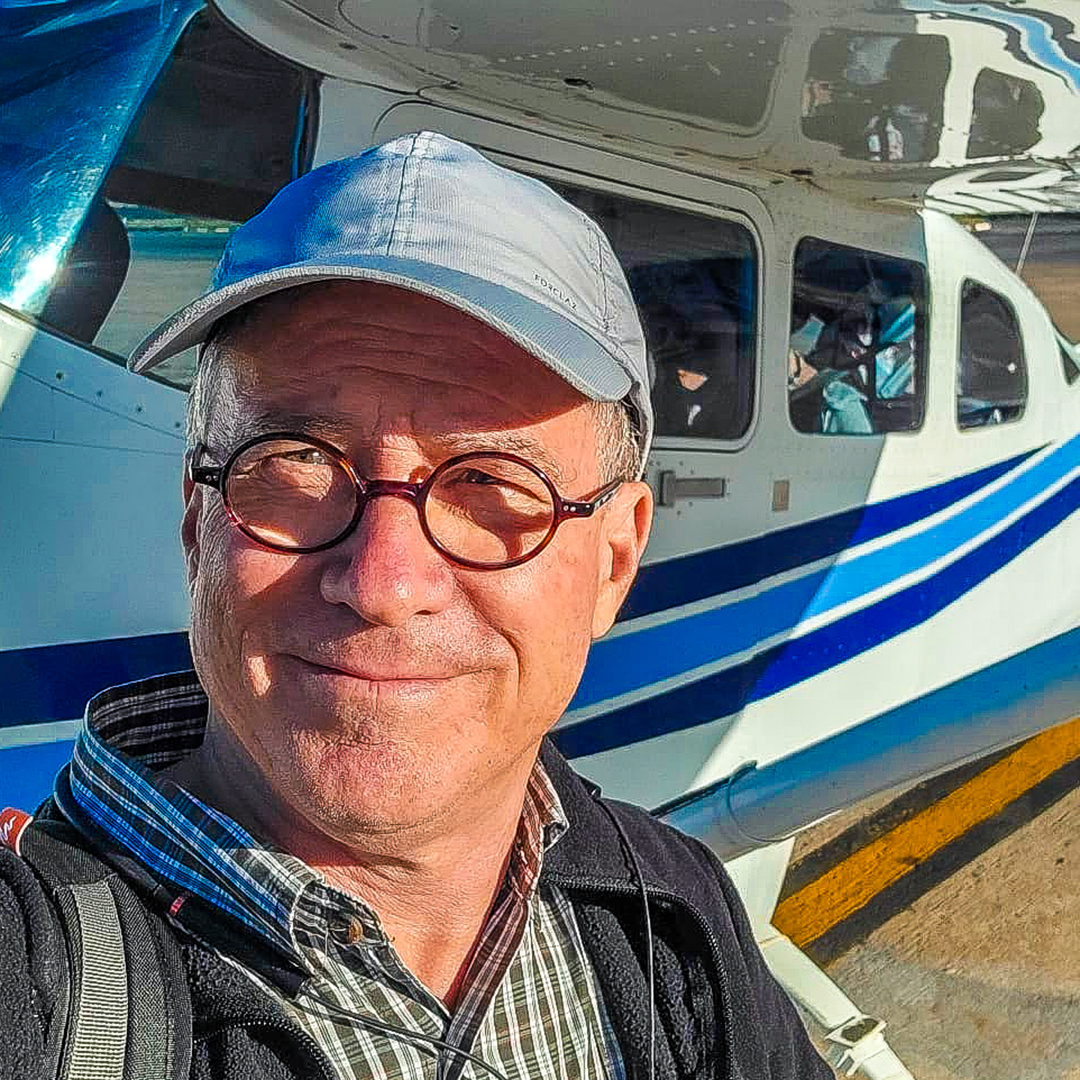
This article was originally published in the March 2006 edition of ITMI Monthly.
(This article was written before the southern part of Sudan gained independence from the northern part and became the present-day country of South Sudan in 2011.)
Sudan
Steve realized he would not be leaving Sudan that day.
Steve Evers and Tim Keller had been on the road for 8 physically, emotionally and spiritually draining weeks.
For the past 10 days, they had been serving in Sudan, encouraging and challenging Sudanese believers, helping the ITAM (It Took A Miracle) team conduct their outreaches, and listening to the needs of the local church.
Sudan had been the most difficult segment of the trip, in part because of the primitive conditions and the strain of trying to serve people so desperately poor that their only set of clothes are torn and disintegrating.
Steve was up early that morning packing his bags by the faint glow of an LED light, brushing frogs away from his belongings and separating items that could be left behind to benefit the Sudanese.
Working hard inside his mud and grass hut he savored the anticipation of being reunited with his family. At daylight the rest of the team awoke. There was an excited buzz in the air, as the team looked forward to their return home.
Later, after farewells, Steve and the ITAM team loaded their luggage and sardined into an ambulance owned by Samaritan’s Purse for the 16km trip to the airstrip. Grateful for God’s accomplishments through them in serving the Sudanese they were now ready to leave.
The ambulance stopped at the midpoint of the deserted red dirt airstrip and the team began to unload their stuff. In the still morning air, they heard the welcome sound of the approaching plane.
It landed, and taxied past them to the end of the runway. Shutting down one of the engines the pilot began to unload boxes of Bibles in the Moru language, sent by Frontline Fellowship.
Steve trotted to the end of the runway and asked the pilot if he would taxi back to the midpoint so that the team would not have to carry all the bags to the plane. The pilot, Captain Walshe, stared at him blankly.
There were only four passenger seats inside the plane and Walshe said that he was not prepared to lift out 15 people and their bags, asserting his plane couldn’t handle it. He was unaware that he was expected to pick up passengers for the return journey to Kenya.
Finally, Steve convinced the unwilling pilot to take the ITAM team and a limited weight allowance of their belongings with him on his return flight.
Steve realized he would not be leaving Sudan that day.
He went to each team member and tallied their personal weight as tension rose. With no scale on hand, each man tried to accurately estimate the weight of his equipment. They began ripping from their baggage everything they could possibly leave behind.
Clothes, valuables, and some equipment was discarded. Final decisions were made and the plane was loaded. Sitting on the hard floor was unimportant since they had been very close to not having any way out to catch connecting flights home.
As the plane’s door closed, you could cut the apprehension with a knife.
Steve watched the plane lift off the dirt strip and clear the trees, then surveyed his situation.
He was alone and surrounded by the clothes and other equipment of the recently departed team. He had given away most of his own clothes, food supply and gear the day before when he had visited the burned-out village of Mariba, so he was unprepared to spend three extra days in Sudan.
He was disappointed at the turn of events, but as usual, the Lord, in his Sovereignty, had other plans for Steve. He soon discovered some other things God needed him to do.
The ambulance driver took Steve to the river. His destination, the village of Mundri, was on the other side.
While waiting for the ferry Steve took inventory of the gear that was left.
This drew a rather large group of Sudanese who longingly eyed the clothing he was spreading out on the ground around him. Then Steve realized the first reason why his trip home had been delayed.
There is a great need for clothing in the southern part of Sudan. People wear the one set of clothes they own until it literally falls off. As you can imagine, they were very pleased to receive the duds left behind by the Americans.
Nearby, two Sudanese ladies had set up a stand and were selling tea and cakes.
One of the ladies graciously offered Steve some tea, even though he had no schillings. Knowing the tea had been made with parasite-infested river water and the cup was washed in the river as well, Steve really didn’t want to partake.
In the moment of decision, he thought, “What would Peter Hammond do?” He knew Peter would risk his own health before he would offend such a gracious giver, so he prayed for the Lord’s protection and bravely swallowed the brew.
Steve heard a familiar voice from the ferry boat crossing the river. It was Vicki, a local believer he had fellowshipped with earlier in the week.
She is an educated woman who turned down a high-paying position with the Ugandan government to return to her people in Sudan and serve them. She is not married, but raises 11 children (none of whom are biologically hers) on an irregular and virtually non-existent income.
One of her children had been at the river earlier and recognized the stranded missionary with his mound of clothing. The child went back to Mundri and told Vicki that one of the “visitors” was stranded at the river.
Vicki had rushed to the river to offer her aid after deploying a man from the church to round up a crew of men with bicycles to meet her at the river.
Vicki was able to get Steve and all of the gear he was carrying across the river by promising that the local church would pay for the passage later. Soon the men arrived on their bicycles, glad for the chance to help Steve.
With all of the bags lashed to their bikes, they made their way into Mundri, where he would discover the real reason for his delayed exit from Sudan.
Later that afternoon, Vicki shared with Steve that she was very discouraged at times, often wondering where the next meal for her little family would come from.
Steve encouraged Vicki by reminding her that God had called her to care for these 11 children and the burden was on Him to provide for them. She didn’t need to bear that burden alone.
Vicki showed Steve the grinding mill, owned and operated by the Women’s League of the local church. The mill is used to generate funds for the League, which are then used to help those in need. Steve made some valuable suggestions for its maintenance to the inexperienced local mechanic.
(Later, he was able to obtain some of the needed parts for it when he returned to Nairobi, Kenya.)
Steve preached in the Mundri church on Sunday, encouraging the people that it is still God who provides for them and warning the leadership not to be distracted by the UN trucks and NGOs that have recently poured aid into southern Sudan following peace agreements.
During the extended stay, Steve had an opportunity to strategize with local church leadership for the future rebuilding of the southern part of Sudan.
The leaders told him the church desperately needs mechanics and tradesmen to come to the area and train church members in skilled work so that they can aid the community in the rebuilding process. The timing for this is crucial.
The church needs to be the first to offer aid to their suffering counterparts. Secular do-gooders will be flocking to Sudan shortly, providing a small dose of aid and a large dose of their opposing world view to the non-believers there. We need to help the church reach their community before it is too late.
Three days later, after God's work was done, Steve finally caught his "ride" out to Kenya.
ABOUT THE AUTHOR
Steve Evers has advocated for and served the ITMI partners as ITMI Director since 2001. Approximately once a year, Steve visits with ITMI partners in their countries and brings stories back to encourage supporters. Steve enjoys photography and mechanics (both hobbies that have greatly benefited ITMI partners!) Prior to becoming ITMI’s Director, Steve served on […]
Get Weekly Updates from the Field!
Subscribe to our email updates







